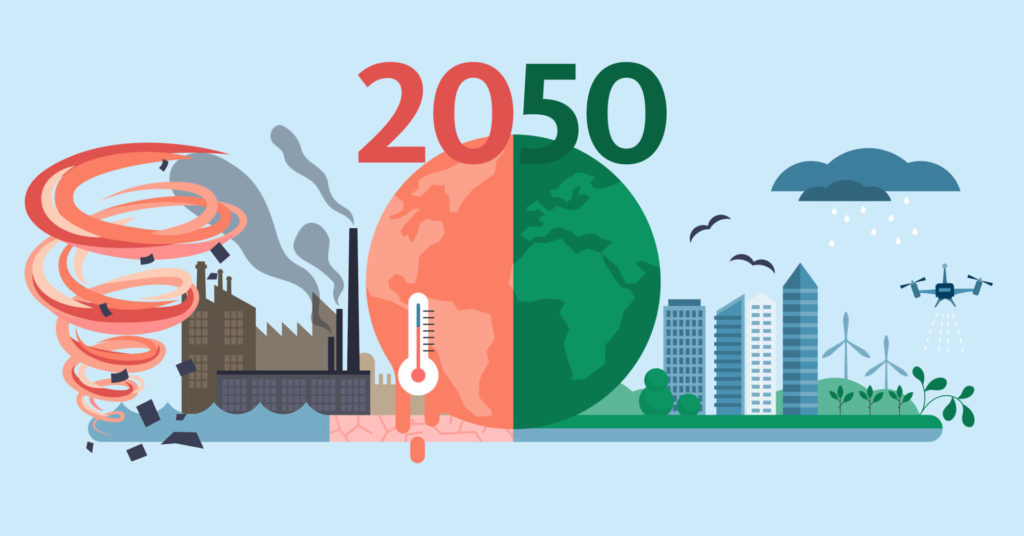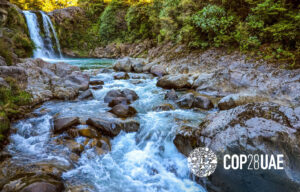5 ways to avert a global water crisis
In 2050, Earth could be home to 10 billion people, but we will not have more freshwater than today. To avert a global crisis, we must immediately change how we use and manage water. Here are five ways to get started.

Already today, close to 4 billion people lack sufficient water at least one month per year and the situation is rapidly deteriorating. The combination of climate change, growing demand and a rising global population is putting increasing pressure on the world’s freshwater. Human activities have broken the water cycle – the system that produces and recycles water – and mending it must now be a top priority.
1. Value water
The situation will only improve when we begin to understand the true value of water. All life requires water, it is a finite resource, and it has no substitute. Given these three characteristics it seems absurd that water has often not been attributed any value at all, though this is luckily starting to change.
When societies place a higher value on water, we can expect improved efficiency and reuse instead of waste and pollution. Both the public and the private sector will want to invest in crumbling water infrastructure to limit waste and prepare for future weather extremes. It makes sense to apply more nature-based solutions to clean water and recharge supply. As we start to understand the true cost of pollution, we can expect improved wastewater treatment and more recycling. All sectors of society must learn to manage water in a way that strengthens the water cycle.
2. Share water
Competition over water is likely to increase and good water governance will be critical. Though having access to clean water and safe sanitation is a human right, the fact the remains that one person in four still does not have access to clean water at home. Similarly, around half the global populations lacks safely managed toilets, which is a major driver of disease and deaths, especially among children. At a time of growing climate threats, lack of water and sanitation exacerbates the vulnerability of the world’s poorest.
Sharing water is an efficient way to increase justice and resilience. This is equally true for relationships between countries who share a river, lake, or groundwater aquifer. By managing it together, they are much better prepared for the increasingly erratic rainfall patterns and the growing number of droughts and floods that must be expected as the global temperature rises.
3. Transform agriculture
All over the world, agriculture must undergo massive transformations, for several reasons. First, to avoid mass hunger since climate change and degraded lands are making farming much more difficult in many parts of the world. Second, to make freshwater available for alternative uses – currently food production accounts for 70 per cent of freshwater withdrawals. A third reason is because agriculture is a main driver of water pollution and global warming.
We need more research and innovation to improve the sustainability, climate resilience and water efficiency of agriculture. But many alternative methods already exist that recharge water, restore soil health and improve food security. Often a combination of traditional knowledge and new inventions give the best results. Changing food habits and reducing waste are other key factors in the overhaul of the global food system that has started and now needs to rapidly pick up speed.
4. Restore ecosystems
The Intergovernmental Science-Policy Platform on Biodiversity and Ecosystem Services (IPBES) warns of an era of mass extinction of species that could threaten also human existence. We depend on healthy ecosystems for food, water, and livelihoods. But by protecting and restoring ecosystems we can limit climate change, stop the loss of biodiversity, and improve water security.
Since all living organisms depend on water, we must pay more attention to the role of water in ecosystems. And this is starting to happen. A growing number of governments and companies understand their responsibility to protect and restore forests, rivers, wetlands, and oceans. This is in turn should mean that we stop over-abstracting and polluting the world’s groundwater, which poses an enormous risk to global food and water security.
5. Build resilience
More and more signs are indicating that Earth’s life-support systems are seriously weakened – across the world people experience droughts, heat waves, floods, and rainstorms at an unprecedented scale. Such extremes are expected to only become more frequent and more severe, making it necessary for all sectors of society to redesign for resilience.
Luckily there are already many good examples from across the world of how this can be done. Cities are integrating trees, wetlands, and farmland to recharge and clean water, boost carbon storage, and reduce the risk of flooding. Farmers shift to agroforestry and methods that improve soil health. Communities protect their local watersheds and manage forests in a way that improves groundwater recharge.
Global water issues in your inbox
Stay up to date on SIWI's work and related topics from around the world.
Sign up to our newsletterWhat all these solutions have in common is that they help us tackle several of the world’s greatest challenges simultaneously. By innovating and working with nature, we can improve the lives of all people, restore the water cycle, mitigate climate change, and improve biodiversity. So, what are we waiting for?







